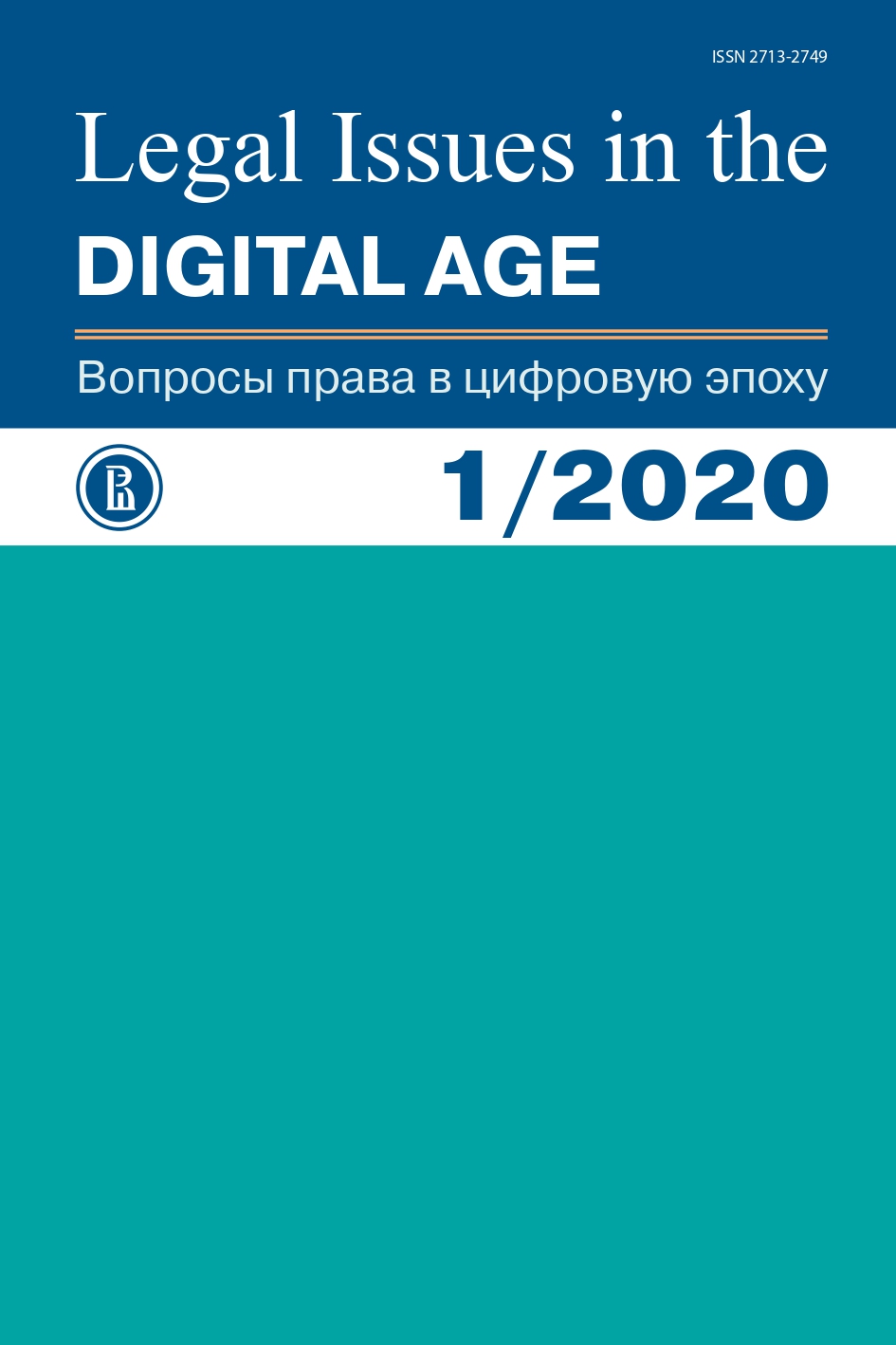Reinventing “Magic Circle” in the Age of Internet Government Control: the Lessons of Videogame Law for Modern Practices of Legal Interpretation
Abstract
The restrictions for disseminating certain kinds of information that is considered publicly offensive and (or) dangerous has made topical a fundamental problem of the limits of reasonable interpretation and application of law to the contexts that could be characterized as virtual, playful or otherwise non-serious. From the standpoint of interdisciplinary approach including mostly philosophy of law and game studies, the underlying problem reflected in the representative examples above, has substantial similarities with the “magic circle” concept studied in the research direction that is conventionally called “videogame law”. However, existing theories of magic circle, both in game studies and law, are not satisfactory to resolve this problem. The article suggests that the solution can be found in theoretical sociology concept of “generalized symbolic media”. If an object of social relationship is an “external referent of value” of such media and has convertible “socio-currency value”, this means that such object is significant enough to be included into the scope of legal regulation. However, for the application of law to be appropriate without doubt, such an object should also share functional similarity with the core meaning of the relevant legal norm. Together, these two criteria, conventionally designated as “the criterion of seriousness” and “the criterion of reality”, are necessary and sufficient to assert that interpretation and application of law is not absurd, but reasonable in cases related to virtual reality that is characterized by possibility to include simulation that is out of scope of law.
References
Abrutyn S. (2015) Money, Love, and Sacredness: Generalised Symbolic Media and the Production of Instrumental, Affectual, and Moral Reality. Czech Socio-logical Review, no 3, pp. 425–471.
Bourdieu P. (2019) Economic Anthropology: Course of Lectures at College de France (1992–1993). Moscow: Delo, 408 p. (in Russian)
Castronova E. (2004) The Right to Play. New York Law School Law Review, no 1, pp. 185–210.
Consalvo M. (2009) There is No Magic Circle. Games and Culture, no 4, pp. 408–417.
Duranske B. (2008) Virtual Law. Navigating the Legal Landscape of Virtual Worlds. Chicago: ABA Publishing, 461 p.
Efremov A.A. (2017) Formation of the Concept of Information Sovereignty of the State. Pravo. Zhurnal Vysshey shkoly ekonomiki, no 1, pp. 201–215 (in Russian)
Fairfield J. (2009) The Magic Circle. The Vanderbilt Journal of Entertainment and Technology Law, no 4, pp. 823–840.
Fuller L. (1968) Anatomy of the Law. New York: Praeger, 355 p.
Huizinga J. (1949) Homo Ludens. A Study of the Play-Element in Culture. London: Routledge, 220 p.
Lehdonvirta V. (2010) Virtual Worlds Don’t Exist: Questioning the Dichotomous Approach in MMO Studies. Available at: http://www.gamestudies.org/1001/ar-ticles/lehdonvirta/ (accessed: 24.05.2019)
Lessig L. (1999) The Law of the Horse: What Cyberlaw Might Teach. Available at: http://cyber.law.harvard.edu/works/lessig/finalhls.pdf. (accessed: 24.05.2019)
Likhachev N. (2012) Russian Eve Online portal has been blocked for guidance on drug use. Available at: URL: https://tjournal.ru/flood/46910-eve-space-block (accessed: 10.12.2018) (in Russian)
Manovich L. (2001) The Language of New Media. Cambridge: MIT Press, 202 p.
Raessens J. (2010) The Ludic Turn in Media Theory. Available at: https://dspace.library.uu.nl/handle/1874/255181 (accessed: 10.12.2018)
Robertson A. (2017) America’s Digital Army: Games at Work and War. Lincoln: University of Nebraska Press, 228 p.
Savchuk V.V. (2014) Mediaphilosophy — Rush of the Reality. Saint Petersburg: RHGA Publishing, 109 p. (in Russian)
Saveliev A.I. (2014) The Legal Nature of Virtual Objects Purchased for Real Money in Multiplayer Games. Vestnik grazhdanskogo prava, no 1, pp. 127 –150 (in Russian)
Stenros J. (2012) In Defence of Magic Circle: The Social and Mental Boundaries of Play. Proceedings of DiGRA Nordic 2012 Conference: Local and Global Games in Culture and Society. Available at: http://www.digra.org/wp-content/uploads/digital-library/12168.43543.pdf. (accessed: 10.12.2018)
Yakovlev A. (2018) I work at Roskomnadzor. The Village, 26 Jun. 2018. Available at: URL: https://www.the-village.ru/village/people/howtobe/316129-zapreschals-chik (accessed: 24.05.2019) (in Russian)
Authors who publish with this journal agree to the Licensing, Copyright, Open Access and Repository Policy.










